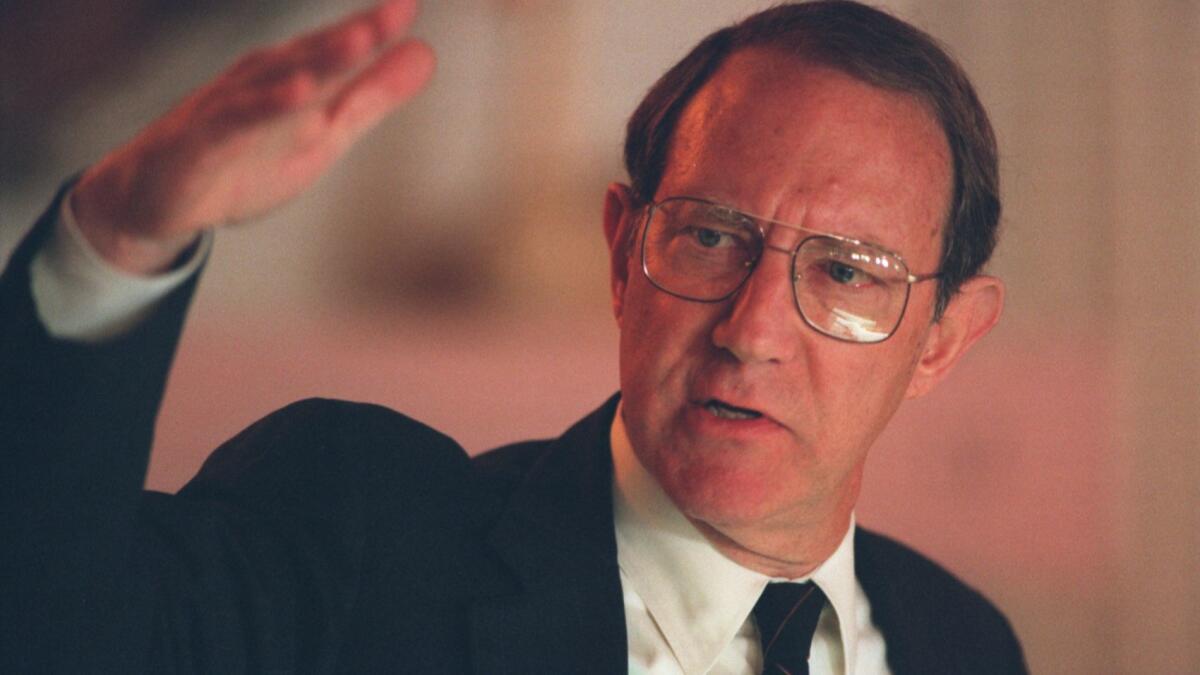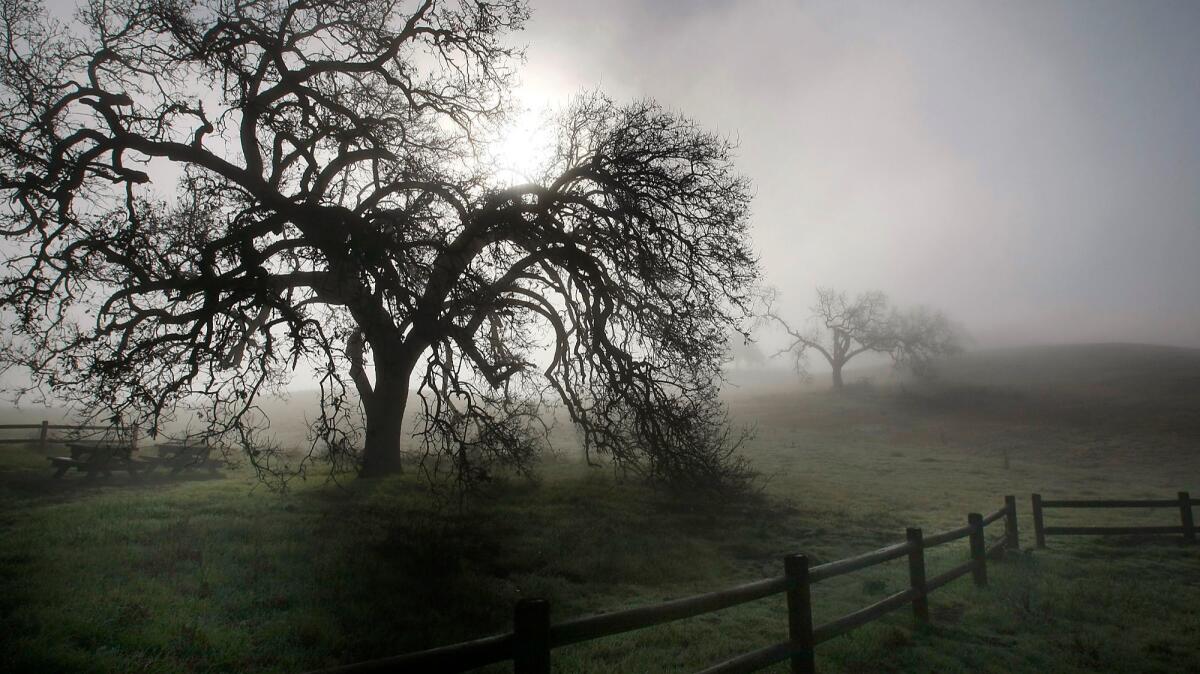Anthony Beilenson, 10-term congressman who championed Santa Monica Mountains, dies at 84

- Share via
Anthony C. Beilenson, a veteran Democratic politician from Southern California who advocated for abortion rights, environmental protection and gun control as a state legislator and 10-term congressman, has died. He was 84.
Beilenson had been recovering from a heart attack last month and died Sunday at his home in Westwood, according to his son, Adam Beilenson.
Over his 20 years representing congressional districts that included the San Fernando Valley, Thousand Oaks and Agoura Hills, Beilenson championed affordable healthcare, environmental safeguards such as the Clean Air Act, and cuts to defense spending.
Among his proudest achievements was sponsoring the 1978 legislation that created the Santa Monica Mountains National Recreation Area, protecting a wilderness that extends from the Hollywood Hills to Point Mugu. He later helped secure federal funding that created Lake Balboa Park, which now bears his name, and the Sepulveda Basin Wildlife Refuge.
As a state senator, he wrote what became one of the most liberal abortion laws in the nation at the time. The Therapeutic Abortion Act legalized the procedure in cases where a woman’s mental or physical health was at risk or if pregnancy resulted from rape or incest. In 1967, then just six months in office, Gov. Ronald Reagan signed the bill into law, although he later expressed regret over the decision.
In Sacramento and in Washington, the Harvard-trained attorney was known for being scholarly, thoughtful and unafraid to take positions that crossed party lines or aroused hostility in voters. Some even called his votes quirky.
He voted against creating a federal Department of Education, calling it a matter for states. He also opposed making Martin Luther King Jr.’s birthday a national holiday, saying federal employees did not need more holidays. He sought higher taxes, lobbied for deficit reductions and proposed measures to curb illegal immigration.
Beilenson long opposed special-interest political action committees and strongly championed civility. U.S. News and World Report once singled him out for his integrity, calling him a “straight arrow.”
Former county Supervisor Zev Yaroslavsky, who also served on the L.A. City Council, praised Beilenson for staying focused on progressive priorities after redistricting altered the legislative map and removed a chunk of reliably liberal Westside constituents. Beilenson’s new district was more evenly split between Democrats and Republicans and had more conservative enclaves such as Thousand Oaks.
“It took a lot of courage,” Yaroslavsky said. “It’s easy to have courage when you represent the Westside as a progressive. It’s another thing when part of your district is in eastern Ventura County.”
State Sen. Henry Stern (D-Los Angeles) said Beilenson was “a creature of a different age in American politics — where comity across party lines was not inconsistent with fervent democratic debate.”
In 1995, as partisan rancor intensified under then-Speaker of the House Newt Gingrich, Beilenson announced his retirement. He told The Times that the surge in right-wing ideologues blocked compromise and made him averse to coming to work each day.
“What has really bothered me about the congressional environment now is all this ideological and mindless politics,” Beilenson said. “Moderate, sensible, middle-of-the-road resolutions of issues seem no longer possible.”

Anthony Charles Beilenson was born Oct. 26, 1932, in New Rochelle, N.Y. His parents owned a small book publishing company, and he grew up in an affluent suburb outside New York City.
After graduating from Phillips Academy, he attended Harvard University, where he earned an undergraduate degree in American government.
He moved to California after graduating from Harvard Law School in 1957, and after a stint in his cousin’s entertainment law firm, he entered local politics.
“I wanted to be useful in the world,” he told The Times in 1981 of his decision to seek public office. “Politics was the way you could acquire the most power to do good things.”
He was first elected to the state Assembly in 1962, representing a district that included Beverly Hills and West L.A. Four years later, he was elected to the state Senate.
In 1976, after Rep. Thomas Rees announced his retirement and said “the Watergate mess” had cast a pall over public service, Beilenson joined the race to succeed him.
Among his top priorities were improving the economy and protecting natural resources, and Beilenson soundly defeated his Republican challenger.
In addition to his son, Beilenson is survived by his wife, Dolores; another son, Peter; a daughter, Dayna; and nine grandchildren.
Twitter: @MattHjourno
UPDATES:
7:10 p.m.: This article was updated with comments from former Supervisor Zev Yaroslavsky.
This article was originally published at 9:40 a.m.
More to Read
Sign up for Essential California
The most important California stories and recommendations in your inbox every morning.
You may occasionally receive promotional content from the Los Angeles Times.














